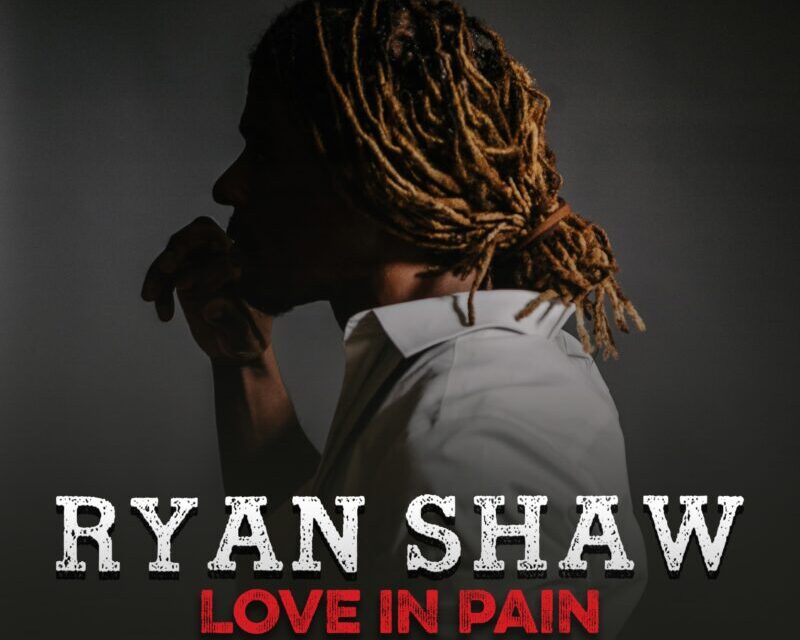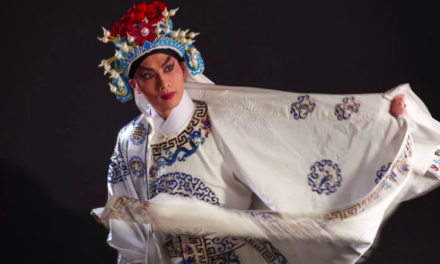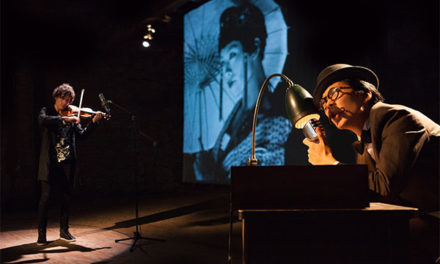An interview with Ryan Shaw
In our new digital era, it was an honor to have a Zoom sit-down with 3-time Grammy nominee and Broadway star Ryan Shaw on his new tribute album to Marvin Gaye, Imagining Marvin. After his roles in Motown the Musical, Jesus Christ Superstar, Carnegie Hall appearances, and more, I wanted to know, from Shaw’s perspective, what true artistry means. How could Gaye’s words and music guide us through this time? What would Gaye think of how far (and not) we’ve come?
Shaw spoke quite candidly about the role he feels artists can play right now, in a time dominated by the social justice movement and a pandemic. How can artists engage us and drive society towards inclusion and positive change? Can Gaye’s music help us get there?
Amy Oestreicher: Ryan, I’ve read so much about you and listened to your new release, Imagining Marvin. It’s just fantastic. I know you had your launch party on November 27th. How did that go?
Ryan Shaw: It went great, a lot of fun, and people seem to really be enjoying the album.
AO: I can see – and hear – why! You chose an epic icon to imagine. You must have gone on a journey writing and recording it. Marvin Gaye had a lot of impact on you and meant a lot within the arts, music, and the world. How do you feel his words resonate now?
RS: Marvin was definitely an iconic artist whose album stands the test of time. In a way his words show how far and how not far we’ve gotten, so I think it’s a good reminder that we still have a lot of work to do on that front.
In terms of Marvin as an artist, it’s always big shoes to fill when you approach the catalog of any iconic artist, so I didn’t want to do a cover album, but a tribute album. This gave me the freedom to be myself, which was important to me, but people would feel his influence and essence on my recording. That’s why my album is called Imagining Marvin. Last year was his 80th birthday, and I realized that he had so many influences on my artistry. When I first got to New York, one of the songs I sang which got me noticed in 1998 was What’s Goin’ On.
Fast forward to playing Stevie Wonder on Broadway, understudying Marvin on Broadway in Motown the Musical, and my third Grammy nomination for covering the Beatle’s song Yesterday. My version was actually inspired by Marvin’s cover of Yesterday – not many people know he covered that song. It’s not super known but probably the best. So when it was time to see what the next step was for me, it made sense to do that. There were also songs I wanted to write that showed what Marvin had given me, from Sexual Healing to What’s Goin’ On, that gave me a wide spectrum to explore.
AO: Would you put “imagining” and “reimagining” in the same category when creating this album? How does that differ from “cover” and “tribute”?
RS: Imagining is inclusive of reimagining– the reason why it’s not “reimagining” is that there are five original songs inspired by Marvin. If he was still alive, I wonder what he would be doing – that was the point of the record. Throughout the span of his career, as shown by conversations with Barry Gordy, Marvin didn’t just want to be what he was known for, he wanted to be involved in activism and political issues. He also wanted to be a crooner and do an American standards album in a “travel with the Rat Pack” kind of situation. If he was alive today and went to another label and got more creative freedom, or joined an Indie label and became an independent artist, what would he be doing? This gave me the freedom to imagine from my own perspective. So there are original songs Marvin inspired, whether by a lyric or rhythmic feel, or a vocal interpretation that I chose to do. They are not carbon copies of what they were because we already have those. If I want to listen to Marvin Gaye, I’ll just get the record. But what you are hearing in Imagining Marvin is a Pandora’s box of options he could have chosen to explore as an artist, so that was really fun to explore.
AO: Do you feel that when you talk about his activism and the wonderful strides he took with his music, you are planting a seed for others to manifest a more positive future ahead through your imagining? Aside from Marvin’s own vision, what is your vision that you want people to actively strive towards through listening to your imagined Marvin tracks?
RS: We all hope what we do as artists inspire others to do things. For me, that’s never the end goal. When I get into a movie I’m watching, I feel, “Oh I gotta write some songs” – it doesn’t have to be specific to what I’m feeling but if the story is told properly, it will inspire me to create other songs that are original.
AO: Truly original – I know what it’s like listening to someone trying to write what they feel others will want and cringing – “Wow, that lyric was so cliché, I am going to pretend I didn’t hear that!” What message are you looking to share through your original lyrics and music?
RS: Yeah, it was all those things. It had to fit me. Based on the feedback I’ve gotten, it’s already inspired a bunch of people. If you’re asking me what message I want it to share, I would hope it inspires other people and they feel that Marvin meant something to me. This album was true to both my artistry and Marvin’s iconic presence.
AO: They say you can’t force someone to change, but if you radiate your own energy and what inspires you, that’s the power the arts have. When you are stepping into a role, such as portraying or understudying Marvin Gaye, how do you embody that character, in comparison to “imagining Marvin” on your own tribute album? Did you try to take that interpretation into your Broadway portrayal, especially now that Broadway is trying to change and bring untold stories to light, and encompass new viewpoints?
RS: It wasn’t too much of a change, because you are portraying a character that everyone knows. You do have to embody new gestures and thing like that. You can’t ignore certain physicality or phrasings.
AO: Was that intimidating?
RS: Yes and no. You have to dive into the world – but, when they show up on the opening night, then it’s intimidating! Jumping into those roles wasn’t. I don’t have an ego, but I’m aware that what I do is God-given and special. I feel there was something about Marvin and Stevie that was special and unique to them, so I stepped into that. I wanted to honor Stevie’s essence but it had to be me to be believable. I would do my own inflections and riffs but in the spirit of him, so it would be believable.
AO: Aside from feeling his presence when you took the stage as Stevie, did you ever hear what he thought of your interpretation?
RS: When Stevie came for the soft opening, it was crazy. Barry Gordon was sitting backstage on the couch. I said, “It’s a scary honor to meet you.” He said, “Nothing to be worried about. You were amazing, I was rooting for you the whole time.” There’s a riff in Signed Sealed Delivered that Stevie hasn’t done that I did, (sings) “There’s a lot of foolish things that I really didn’t mean and I want to tell you baby” He sings that riff back to me and says, “I like that.” I was validated!
AO: I know you began singing in the Pentecostal church when you were only three years old and took your first solo when you were five. Music, specifically religious music, continued to be an important part of your life. What message would you have for a small child learning to use their voice and learning what role the arts can have in this wacky world?
RS: I would say absorb everything and use it to develop who you are. A lot of artists are looking to “be the next” – a lot of labels are just plugging people into the next “thing” rather than looking at original artists – that’s where novelty comes from. Something genuine, original, quirky – whatever it is, it needs to be original. Now everyone sounds alike. Where’s the originality? I know a ton of singers who are original but the producers don’t pick that up because they are looking for the next, “whatever they hear on the radio” so my advice would be to absorb everything, but stay true to your artistry and never become a carbon copy of what you think you should sound like.
AO: When talking about the journey to finding your own voice, Gaye pushed the envelope in his time and made a huge difference in doing do. In what ways are you trying to push the envelope as an artist?
RS: I wasn’t trying to prove anything but honor his spirit and interpret how he might be now. In terms of the variety of things he wrote, he wrote Sexual Healing, which was unlike anything I heard on the radio when I first heard it. It inspired my original song “Sin.” In the Christian community I grew up in, which talks about marriage out of wedlock (which is controversial), sin is real. Here in America, we like to say, “don’t say that” but we do sin, so why not be transparent about it?
My other original song, “Strong Men Can,” deals with men and mental health. This was my first single that approached the big social issue, of society saying, “strong men don’t cry and don’t get emotional.” When we’re born, the first thing we do is cry when we take our first breath. As we grow, we’re told, “Don’t do the first thing you’ve ever done. Don’t cry.” Often we were told or trained to go against what we were born doing.
AO: It’s also why as vocalists we end up needing voice lessons to free up our vocal cords. We’ve been taught to refrain from yelling and crying, and that’s where all the tension in our throat stems from. That’s why the vocal release is the best outlet to get all of those stifled emotions out. They are sensations we’re entitled to feel. Speaking of artistic energy that flows naturally from us, you’ve described your original songs like “Sin” as a stream of consciousness. What was the process of translating that stream of consciousness into the form of a song?
RS: I started writing in the studio, and my first writing trips were NY-based, but then I spent a week in Stockholm, five days in Copenhagen, and three weeks in London. Working with different producers, I learned to be diverse in what I wrote. Some producers would pull upset tracks, some would pick up a guitar and we would create organically. Sometimes I’d be inspired by a record I heard and ask myself, “what would Marvin do with this?” A lot were co-written, some I wrote with a keyboard, and some were written over a decade ago.
I know a lot of the songs I’ve written over a decade ago sit on the backburner and then you knew when the time is right, or sometimes something happens like this pandemic that influences how the song evolves.
AO: Speaking of which – what effect did that pandemic have on your songwriting or the songs you had already written?
RS: On one particular number, the song Love in Pain, I did the song live in New York to make sure it worked for me. I wanted people to think, “Oh, this is great,” or “Wow, it’s Marvin,” instead of “oh this is a Marvin song.” When I was renewing my contract with Round Hill, we didn’t know Rob Thomas was also signed. Rob and I started writing together and our song, which would have never happened, turned out great. So, the pandemic definitely affected this album.
AO: Rob Thomas said some wonderful things about you. You both are creative powerhouses. How did your outlooks on creativity compare?
RS: Rob is an amazing collaborator with no ego, even with all of his success. Rob is like a rubber sponge. If you have a concept, he takes it in and immediately turns it into something incredible. Derek Furman also wrote a song and then five minutes later, Rob came up with something we had just discussed. When we get into the virtual room, it’s about the energy and we just bounce off each other. We’ve done another session with another song that wasn’t right for this record, but there will definitely be more songs in the works.
AO: Also appearing on the album is Broadway star and recording artist Shoshana Bean, who was spectacular in Waitress and Wicked. You have a great duet with her on the classic Marvin Gaye and Tammi Terrell duet, “Good Lovin’ Ain’t Easy To Come By.” Was there something you both discovered through this duet or were you both were influenced by Marvin Gaye? What was it like recording a duet with her, who you’ve called both “amazing” and a “beast?” Supreme compliments, definitely!
RS: I met her around 2011 in LA. She was doing her residency at one of the hotels and by the end of the night, I was in awe. I didn’t know her, but a friend of hers had introduced her to my album a while ago and she said she was a fan. We had seen each other perform; I saw her in Waitress but never worked together. Her background singer lost his voice, and we had been talking about working together for a while, so I asked, “when is the show?” She said, “the day after tomorrow. Wow, I really owe you big time!” When the album came out she did all the work in a complete week back in LA, recording the album jet lag and all, and that’s what she gave us. That’s how much of a beast she is. She’s ridiculous!
AO: I was so happy when I saw “Shadow of your Smile” as the last track of your album. You had said Gaye always wanted to be a crooner. Why did you pick that song, and what was it like for you delving into that crooning style?
RS: Right before he passed he was working on an American songbook album. It’s called Vulnerable and it’s my favorite Gaye vocal because his singing so pure. I sang it note for note how Marvin sang it – it’s the only song I didn’t do any riffing to because it is so pure, you just sing it how it is. If you are doing a version of that inspired by you, just sing it how it is.
AO: My mother thinks Barbra Streisand did this ultimate version, but I think this will be the ultimate. Last question – no one knows what the post-COVID music and arts landscape will be like, but how do you visualize all of this and your role in it going forward?
RS: Nothing happens before its time. It was time for me to do this. People are home and listening. By the time everything clears, the goal is to put enough effort and interest into this album so that by the time we tour, I’ll have continued to build my brand. Hopefully, another album will be in the works. The possibilities are infinite. The goal is to take the project out and let it shine live. The studio is one thing, but where I shine is live.
AO: That’s what we do as performers. We need to physically engage with a space and audience to really feel alive and make an impact, right?
RS: There’s nothing like it. It’s transformative. When I perform, I’m here, but I’m also somewhere up there [having a kind of out-of-body-experience]. I’m an emotionally connected singer. I don’t know what I did for a riff until I listen to it because I’m halfway in another realm. When I travel there, people travel with me. I always connect to the energy in the room. You feel what the community is feeling. When I was touring with my band I would never have a set list, I’d have a master list that I’d draw from based on what the crowd is feeling.
AO: People want to be in that grief, sin, and unpleasant emotions in a healthy way, and that’s what the arts allow. People don’t want to numb out to it, and it’s great that music like yours can really penetrate that. Speaking of live performance, do you have digital events coming up?
RS: My launch party was the digital thing. My birthday is Christmas day so I might have a live pop-up show on my site, but what’s scheduled right now is all in the first quarter of next year. I definitely see this as a live event.
AO: That’s where music truly comes alive for you, right?
RS: Exactly.
Shaw’s album is produced by Broadway Records, a label dedicated to preserving musical theatre and theatre vocalists. Recent releases include the Grammy® and Tony Award-winning The Color Purple (2015 revival), the Tony Award® winning and Grammy® nominated revival of Once On This Island, the Grammy® nominated Matilda The Musical, and Fiddler.
Amy Oestreicher is an Audie award-nominated playwright, performer, and multidisciplinary creator. A singer, librettist, and visual artist, she dedicates her work to celebrating untold stories, and the detours in life that can spark connection and transform communities. Amy overcame a decade of trauma to become a sought-after PTSD specialist, artist, author, writer for The Huffington Post, international keynote speaker, RAINN representative, and health advocate. She has given four TEDx Talks on transforming trauma through creativity, and has contributed to NBC’s Today, CBS, Cosmopolitan, Seventeen Magazine, The Washington Post, Good Housekeeping, and MSNBC, among others. Amy has toured her multi-award-winning musical, Gutless & Grateful, to over 200 venues from 54 Below to Barrington Stage Company since its 2012 NYC debut, and her multimedia musical, Passageways (original lyrics, music, book and mixed media artwork) has been performed at HERE Arts Center, Dixon Place, the Triad Theater, and livestreamed internationally. Her published plays have performed by theatres, students, and cultural organizations nationwide. She has recently published her memoir, My Beautiful Detour: An Unthinkable Journey from Gutless to Grateful, and the CT Press Award-winning autobiography will be released as a self-narrated audiobook in January 2021. See more at www.amyoes.com
Ryan Shaw is a three-time GRAMMY-nominated artist. He recently appeared as Judas at the Lyric Opera of Chicago in the U.S. premiere of the critically acclaimed London/Regent’s Park’s production of Jesus Christ Superstar, which won the Olivier for Best Musical Revival. He starred as the original Stevie Wonder in Motown: The Musical on Broadway, and on London’s West End as the Soul of Michael Jackson in Thriller Live. As a recording artist, Shaw has released three solo GRAMMY-nominated projects to date: 2008’s THIS IS RYAN SHAW, 2011’s IT GETS BETTER, and 2014’s REAL LOVE. He has toured the world and shared the stage with such artists as Van Halen, Bonnie Raitt, Joss Stone, John Legend, B.B. King, Bruce Hornsby, and Jill Scott, to name a few. On television, Ryan has been a guest artist on The Ellen DeGeneres Show, Ellen’s Really Big Show, Last Call with Carson Daly, and The Martha Stewart Show. His music has been featured in television on FOX’s So You Think You Can Dance, ABC’s Dancing with The Stars, Grey’s Anatomy, and Lincoln Heights, as well as in films including My Blueberry Nights, Bride Wars, and the Sex and the City soundtrack. As a concert soloist, Shaw made his Radio City Music Hall debut at the Dream Concert benefit to build the Martin Luther King, Jr. Memorial in Washington, D.C. His Carnegie Hall appearances include Elton John and Bernie Taupin Tribute, A Celebration of The African American Cultural Legacy, curated by Jessye Norman, and a recent Nat King Cole centennial concert with the New York Pops. His concert schedule also includes Nat King Cole at 100 with the National Symphony Orchestra at The Kennedy Center, and A Tribute to the Queen of Soul: Aretha Franklin with numerous major orchestras throughout North America. Shaw continues to be a return featured special guest with the Houston Symphony, as well as performing with the Chicago Symphony, Cleveland Orchestra, Philly Pops, Seattle Symphony, Utah Symphony, Colorado Symphony, Arkansas Symphony, Tucson Symphony, Utah Symphony, St. Louis Symphony, Orlando Philharmonic, Helena Symphony, Mississippi Symphony, Anchorage Symphony, Calgary Philharmonic, and numerous others.
This post was written by the author in their personal capacity.The opinions expressed in this article are the author’s own and do not reflect the view of The Theatre Times, their staff or collaborators.
This post was written by Amy Oestreicher.
The views expressed here belong to the author and do not necessarily reflect our views and opinions.


















